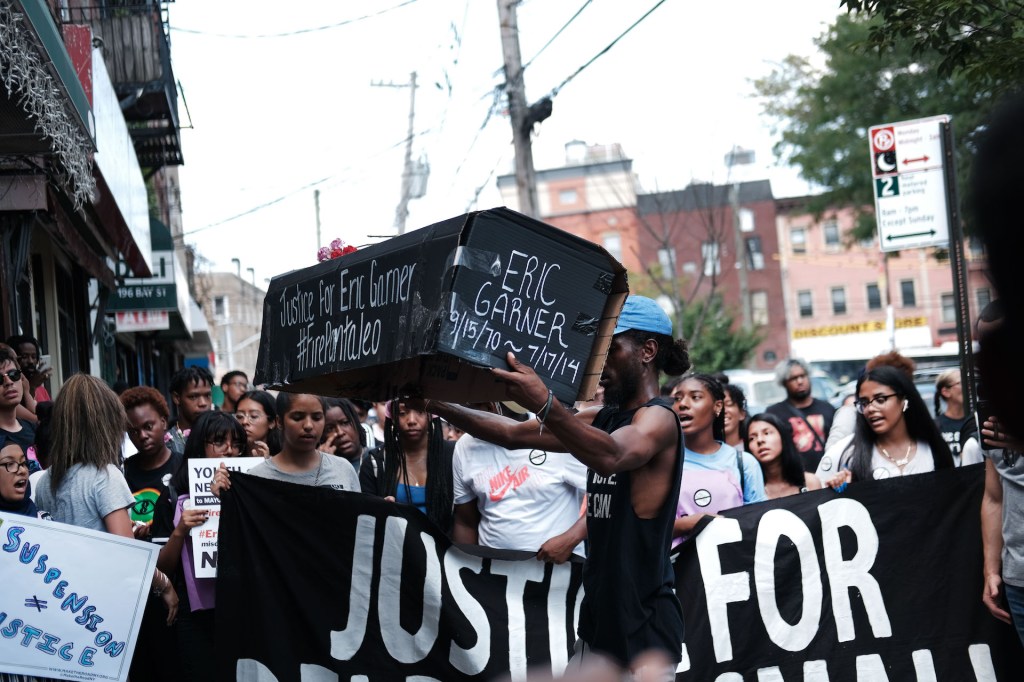New York Police Department Commissioner James O’Neill announced Wednesday that his office had taken steps toward eliminating barriers that police officers of different faiths often face. By creating accommodations for religious headgear and beards as part of police uniforms, O’Neill said the NYPD was making sure “everybody in New York City that wants to apply and have the opportunity to work in the greatest Police Department in the nation” can.
The news evoked particular excitement throughout Sikh and Muslim communities, whose religious practices often run up against the NYPD’s strict dress code. Sikh and Muslim officers and civilians alike celebrated the news that the country’s largest police force was reducing employment barriers that often specifically affect their communities but remained cautiously optimistic, unsure whether the new policy will adequately accommodate their religious requirements.
Videos by VICE
Sikh and Muslim Americans are often forced to choose between the western-centric dress norms their professions require and their right to freely practicing their religion. That includes physical demonstrations of faith like keeping turbans and facial hair uncut for Sikhs and beards for Muslim men. The struggle is especially true in public and government jobs, where uniform policies were not made with religious minorities in mind, said Harsimran Kaur, the legal director of the Sikh Coalition.
Before the NYPD’s policy change, Sikhs were required to remove their turbans for a police cap. Additionally, the restrictions on beards made many Sikh, along with Muslim and Jewish, candidates ineligible for the job. The Council on American-Islamic Relations’ Corey Saylor said it was a “good move to not put people in the position to choose between public service and religion.”
“I don’t doubt that allowing officers to maintain a beard will open the door for Muslim-Americans who want to keep their sincerely held religious beliefs and serve the public,” Saylor added.
With the policy changes, NYPD officers will be allowed to wear a navy blue turban and grow up to a half-inch long beard so long as they apply for and receive religious accommodation from the Deputy Commissioner of Equal Employment Opportunity, according to Commissioner O’Neill’s statements on Wednesday.
But for some Sikh-American community leaders, the assurances Commissioner O’Neill made fell short of the ideal of religious freedom.
“The devil is in the details, and we hope the NYPD recognizes that any trimming of the Sikh beard is in direct violation of the Sikh faith and would continue a policy that forces officers to make the false choice between their religion and service to our great city,” Kaur said.
Another cause for concern among the Sikh community is that the policy makes applying for the right to practice their religion on the job an individual’s prerogative, decided on a case-by-case basis — a model which has caused Sikh-Americans who sought accommodations in the Army months of wait time and long legal battles.
“These policies were created consistent with the western ideal of what it means to look like an officer or a professional,” Kaur said. “This leaves the burden to request accommodation on minorities. Any policy change should limit this burden so that religious minorities are not discouraged from serving.”
Multiple Sikh-American officers have also sued the department, claiming religious discrimination because they refused to remove their turbans or shave.
But the steps the NYPD has taken are certainly in the right direction in Kaur’s eyes, as she praised the recently appointed commissioners statements on Wednesday.
“If the NYPD’s new policy indeed allows for Sikhs to maintain unshorn beards and turbans, then that sends a powerful message to the rest of America that religious minorities are an important part of our nation’s fabric.”




